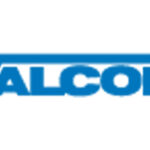Several factors present great opportunities for systems integrators that already have a strong foothold in the commercial market. Corporations are calling employees back to the office with promises of more comfortable, efficient work environments, hospitality establishments are integrating new connected technologies to attract and retain patrons, entertainment venues are enriching experiences by feeding curated information to customers via the cloud. Also, owners of MDUs are increasing sales and social engagement among residents by building interactive communal spaces.
Rise in Need for Robust Networks
A wide range of technologies will help bring these experiences to fruition, the most vital being a reliable, stable enterprise-grade Wi-Fi network that’s been professionally designed, installed and configured. A standard off-the-shelf networking system simply can’t enable seamless interoperability of the myriad devices as distributed audio and video, automated lighting and thermostats, controllable shading and more become increasingly commonplace in commercial environments. Nor can a basic networking system ensure ample bandwidth, speed and coverage to maintain optimal efficiency, productivity and exceptional user experiences in diverse commercial applications.
It’s a situation reminiscent of the difficulties felt by families during the pandemic. They quickly realized the limitations of their existing networks as they struggled to work, learn and entertain efficiently and reliably at home, and were eager to explore better options.
Integrators rose to the challenge and met those needs by working creatively to specify, design, configure and deploy more robust networking foundations to support the bandwidth requirements of tech-savvy users. The new systems in these projects provided enterprise-grade coverage, speed and reliability to keep multiple users connected and devices performing optimally.
This emerged as a pivotal moment for the custom integration channel. The industry had matured to a point where there was little difference in the networking needs and expectations of residential and commercial customers.
Shift to Enterprise-Grade Projects
Now it’s time to turn our focus to commercial settings, where the adoption of sophisticated AV, lighting and automation technologies is growing and advanced networking solutions are the linchpin.
Why not optimize the performance of the technologies you may already offer commercial clients with the addition of an enterprise-grade networking solution designed and engineered for large-scale connectivity, cybersecurity and customization?
Dealers and integrators should rely on the manufacturers and distributors they work with for commercial endeavors through focused business strategies, marketing and sales initiatives, and dedicated tech and design support.
With a few adjustments, the same solutions that have been deployed in residential projects for many years can now handle the rigors of even larger, more complex networking requirements in commercial settings.
By working on enterprise-grade commercial projects, integrators can thus open the throttle and see what’s possible and tackle the unique networking challenges of commercial projects with ease and confidence. Here are three key areas that an enterprise-level networking system is able to address:
1. Security
The biggest elephant in the room when discussing networks with commercial customers is security. With so many users accessing incredible amounts of sensitive data, cybersecurity risks are incredibly high and all it takes is one employee or patron to open a malicious link and the entire organization is compromised.
Consequently, the responsibility falls on the networking system. Manufacturers and integrators need to work together closely to select the right products and design systems that meet the end users’ needs when it comes to safety and security.
2. Scalability
Scalability is another key consideration. Many end users want systems that can easily be expanded through the addition of new hardware, firmware, as well as service, and can be scaled and customized to the size and scope of any commercial project, be it a large corporation or a boutique hotel.
Dedicated VPNs and ISPs can be assigned and appropriate network security and prioritization protocols commissioned, based on the specific needs of the commercial client. Systems are designed for long-term viability, so the networking system can be modified as the needs of the commercial customer change.
3. Comprehensive System
Finally, looking beyond manufacturing enterprise-grade home networking equipment, the design, customization, installation, and management of the system is critical. To ensure strong, even Wi-Fi coverage, impenetrable network security, and ongoing system maintenance and customer service, systems need to have comprehensive remote monitoring and remediation set up to mitigate costly downtime for businesses.
Concluding Thoughts
Differentiation and market expansion have always been the lifeblood of the custom integration channel, and manufacturers are continuing to see huge potential in the commercial sector. Additionally, integrators should work closely with their manufacturers and dealers to understand the latest products and solutions available to assist them as they break into new markets.
Mike Melikyan is Access Networks director of network engineering.















